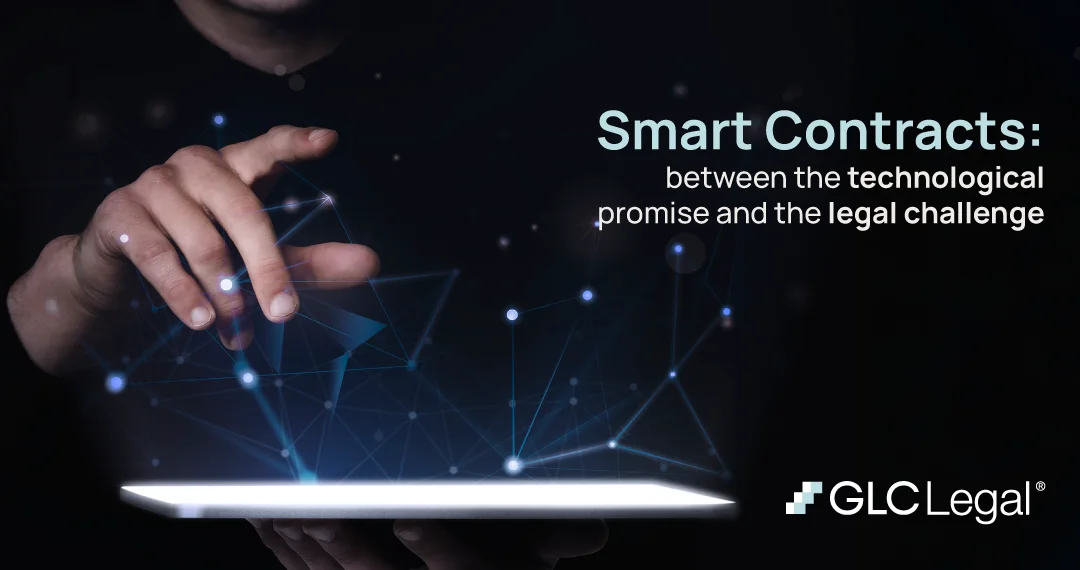Automation and the role of lawyers
When I began my professional career as a lawyer in 2009, people were already talking about the automation of contracts, and even the prediction that within a few years lawyers would no longer be necessary in many areas. 16 years later, although technological disruption continues, fortunately for us lawyers, we have not yet reached the point where we can be replaced. However, some advances—especially in the Internet of Things (IoT) and artificial intelligence (AI) —raise the question of whether that may become possible in the medium term.
What is a smart contract?
It was Nick Szabo who, in 1997, developed a series of protocols based on complex algorithms, enabling people to formalize agreements digitally and efficiently. This laid the foundation for what would later become known as smart contracts.
Smart contracts are essentially digital agreements stored on a blockchain, executed automatically once the predetermined terms and conditions are met. Unlike traditional contracts, they do not use ordinary legal language, but rather cryptographic and objective language, leaving no room for interpretation. In essence, they are automated programs or pieces of code stored in an immutable, distributed database, allowing two or more parties (individuals or entities) to be immediately certain of the outcome—without intermediaries—in a simpler and more secure manner.
In simple terms: they are programs that automate the execution of an agreement between two or more parties, reducing the need for intermediaries and increasing traceability. The Bitcoin protocol, which basically records proof of payment, can be considered a primitive version of a smart contract. While Bitcoin protocol implements limited logic to record payments, platforms such as Ethereum expanded that capacity to allow programming of complex conditions.
How Smart Contracts Work
Smart contracts operate through rules—very generally speaking: if “x” happens, then “y” occurs. A network of computers executes the actions once the predefined conditions have been met and verified. There may be as many stipulations as needed to satisfy the participants, who can rest assured that the tasks will be completed successfully. To establish the terms, the parties must determine how transactions and their data will be represented on the blockchain, and agree on the “if/when… then…” rules that govern those transactions.
The benefits attributed to smart contracts include: autonomy, decentralization, speed, efficiency, precision, trust, transparency, security, and cost savings. All of this is achieved because the program executes itself, without the possibility of alterations or interpretations, thereby automatically excluding third-party involvement—namely, lawyers or notaries.
Blockchain and smart contracts: beyond money
I found something interesting on a website addressing this subject, which explained the following:
Because it is an encrypted, immutable database maintained not by a single computer but by hundreds or even thousands, where virtually anything can be recorded— including computer programs such as smart contracts—manipulation becomes virtually impossible. Regarding the handling of money, blockchain technology has enabled the rise of cryptocurrencies, a form of digital and decentralized asset not tied to any government or entity, available to anyone anywhere in the world without territorial regulations—thus greatly facilitating money transfers. Finally, there is the connection to real-world assets.
How Would a Smart Contract Work in the Purchase of a House? Let’s say María wants to buy Pedro’s house on credit, paying in monthly installments. They use a smart contract platform (such as Ethereum) to program the contract with the agreed-upon terms: for example, that María must pay X amount before a specific date each month, otherwise the lock on the front door will block, and that Pedro will irrevocably transfer the property title—registered on the blockchain—to María once the agreed amount has been paid in full. The smart contract would then execute these instructions to the letter, without María or Pedro being able to intervene.1
This scenario would have substantial implications if applied to Costa Rica’s registry system, where Notaries Public could become unnecessary if an application were developed that could handle all property-related checks and the selling company’s due diligence, and subsequently carry out the secure transfer of the asset, even with a mortgage in favor of the seller. One cannot help but wonder whether new generations—much more receptive to change and inclined to adopt technology—will eventually decide that the notarial system is outdated, and that it is more reliable, cheaper, faster, and safer to use computer programs for such transactions, especially after so many cases of notarial fraud.
Are they valid today in Costa Rica?
Regarding the validity of these contracts under Costa Rican law, in my opinion, smart contracts would indeed be permitted under the current legislation, provided that no legal formalities must be observed—such as those requiring execution through a public deed (e.g., the sale of a vehicle or real estate). In most cases, no such formalities exist, and the principle of contractual freedom would allow it (everything not expressly prohibited is permitted).
Moreover, as mentioned above, it would not be surprising if the law is eventually amended to eliminate the solemnity of the public deed and replace it with smart contracts, which could provide greater security to the parties involved. Only time will tell.
1Pérez, Isabel (3 de setiembre del 2025). Qué son los ontratos inteligentes.
Author: Diego Elizondo
If you wish to learn more in detail about this topic, as well as other corporate topics, please write to
diego@glcabogados.com.








